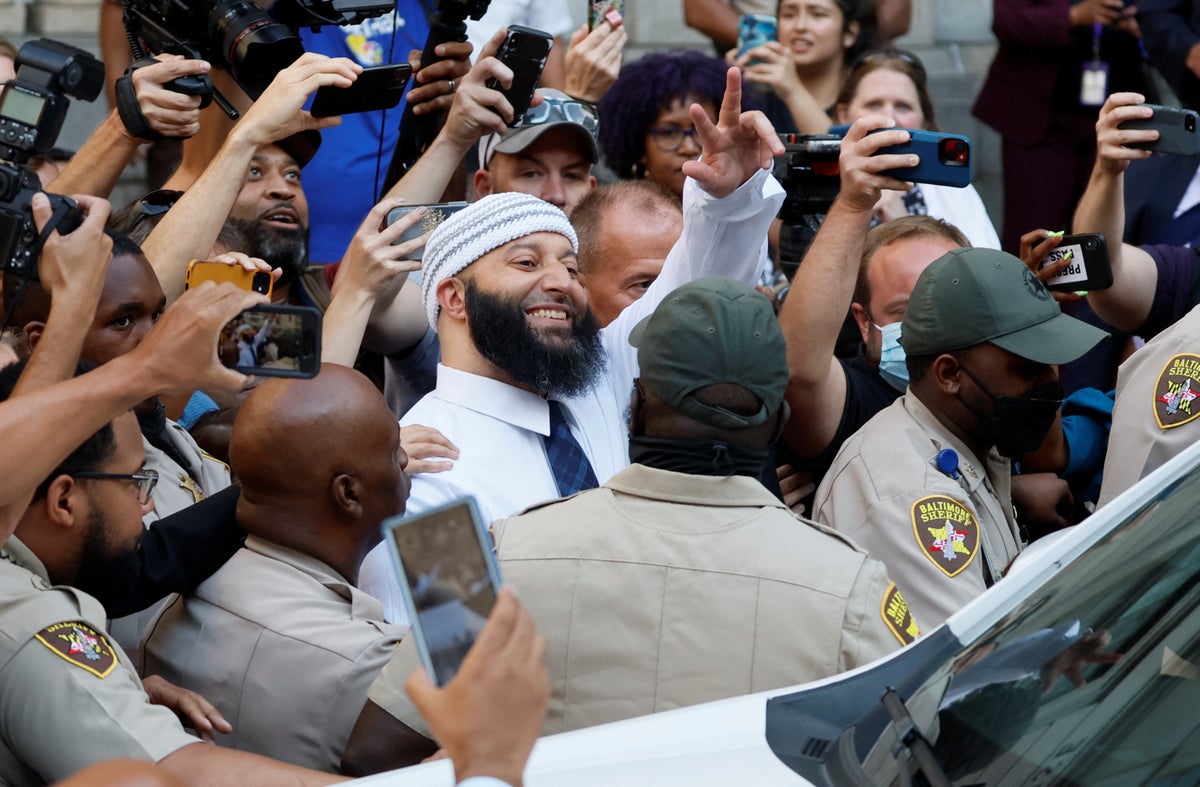
Adnan Syed said he “can’t believe it’s real” as he walked out of court a free man after a Baltimore judge overturned his conviction for the 1999 murder of his ex-girlfriend Hae Min Lee.
Baltimore City Circuit Judge Melissa Phinn vacated the 41-year-old’s conviction “in the interest of justice” on Monday and granted him a new trial, marking the latest dramatic twist in a case that has captured attention across the globe.
Syed’s shackles were removed and the judge ordered him to be released under home detention while the investigation continues into Lee’s murder.
Minutes later, he was met by a roar of cheers as he walked down the steps of the courthouse and got into a waiting vehicle. Syed smiled and flashed the peace sign at his supporters but declined to make any comments.
His attorney Erica Suter told reporters that the 41-year-old was in disbelief and was looking forward to getting on with his life after spending the last 23 years behind bars for a crime he says he didn’t commit.
When asked what his first words where when the judge delivered the ruling, she replied: “He said he can’t believe it’s real.”
“He’s looking forward to being with his family,” she added.
Baltimore City State’s Attorney Marilyn Mosby also spoke outside the courthouse, saying that she had asked for Syed to be granted a new trial “in the interests of fairness and justice” but said that the state was not declaring him innocent just yet.
“We are not yet declaring Adnan Syed is innocent but we are declaring, in the interest of fairness and justice, he is entitled to a new trial,” she said.
She added: “Ms Lee’s family deserve closure, they deserve justice and we intend to fight for that.”
Under state law, prosecutors now have 30 days to decide whether to drop the charges against Syed or to retry the case.
Ms Mosby said that prosecutors were waiting for the results of DNA testing which they hope could advance the investigation.
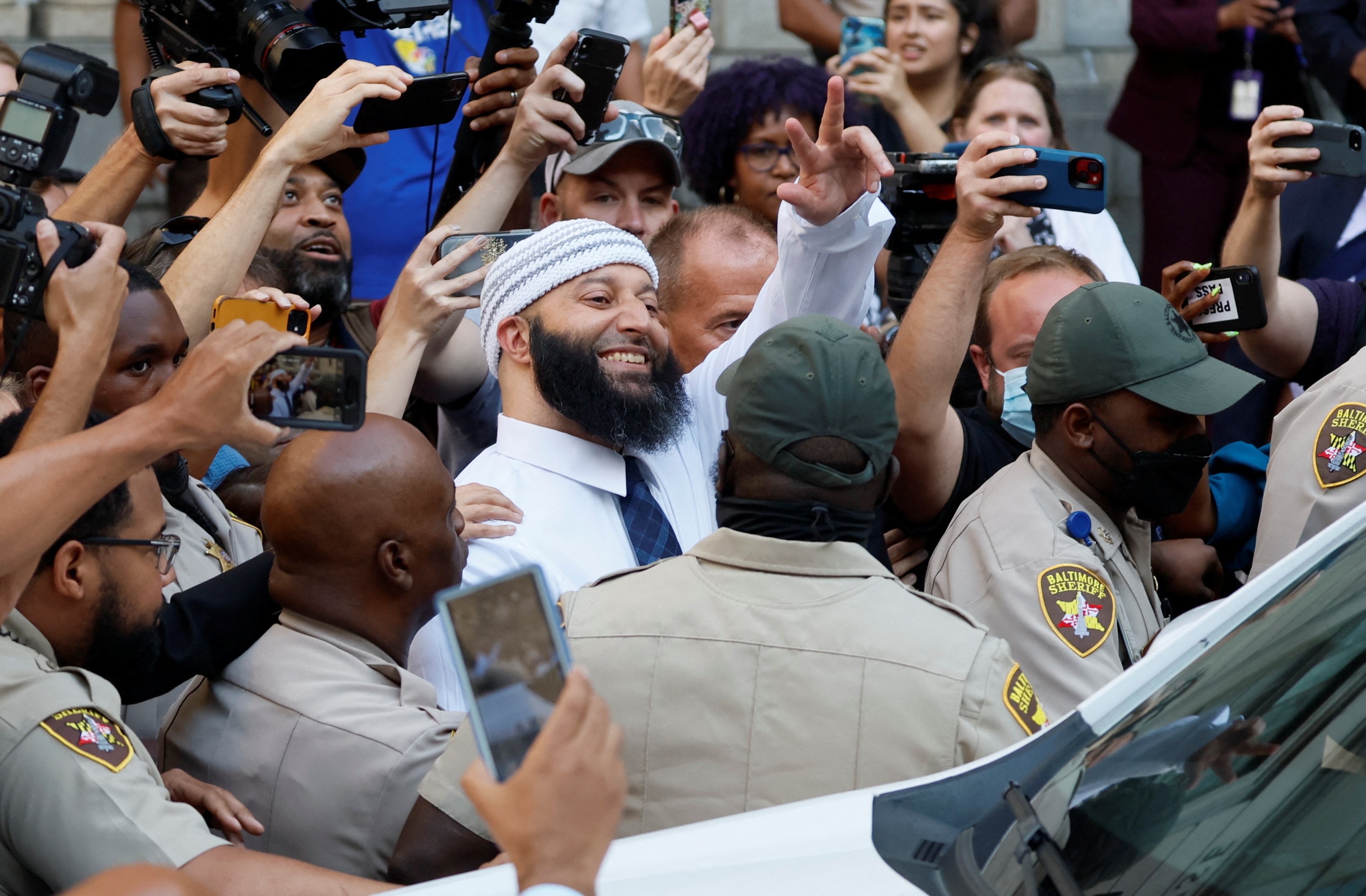
Before the judge issued the ruling, Lee’s brother gave a statement to the court describing the toll the case is taking on his family.
Young Lee, who joined the court hearing virtually from the West Coast, said that the constant revival of the case is “killing me” as he urged the judge to “make the right decision”.
“I’ve been living with this for like 20 plus years. Every day when I think it’s over... or it’s ended, it always comes back,” he said. “It’s killing me. It’s really tough.”
He added that he felt “betrayed” by the prosecution, after they blindsided the family by casting doubt on Syed’s guilt – after spending more than two decades insisting he was the killer.
The ruling comes days after prosecutors in Maryland made the bombshell request for his release saying that “the state no longer has confidence in the integrity of the conviction”.
On Wednesday, Ms Mosby filed a motion asking for Syed’s conviction to be tossed, after an almost years-long investigation raised serious doubts about the case.
Ms Mosby cited doubts about the validity of cellphone tower data which was used in the original trial to place Syed at the scene of the crime.
She also pointed to new information about the possible involvement of two alternate unnamed suspects.
The two suspects, who were not named because of the ongoing investigation, were both known to the initial 1999 murder investigation and were not properly ruled out or disclosed to the defence, prosecutors said in Wednesday’s court filing.
According to the court documents, one of the suspects had threatened to kill Lee around the time of her murder, saying that “he would make [Lee] disappear. He would kill her”.
Lee’s car was also found directly behind the house of one of the suspect’s family members, prosecutors said.
One of the suspects was ruled out of the case by police based on faulty polygraph tests, the documents state.
Both suspects have criminal records, with one convicted of attacking a woman in her car and the other convicted of serial rape and sexual assault.
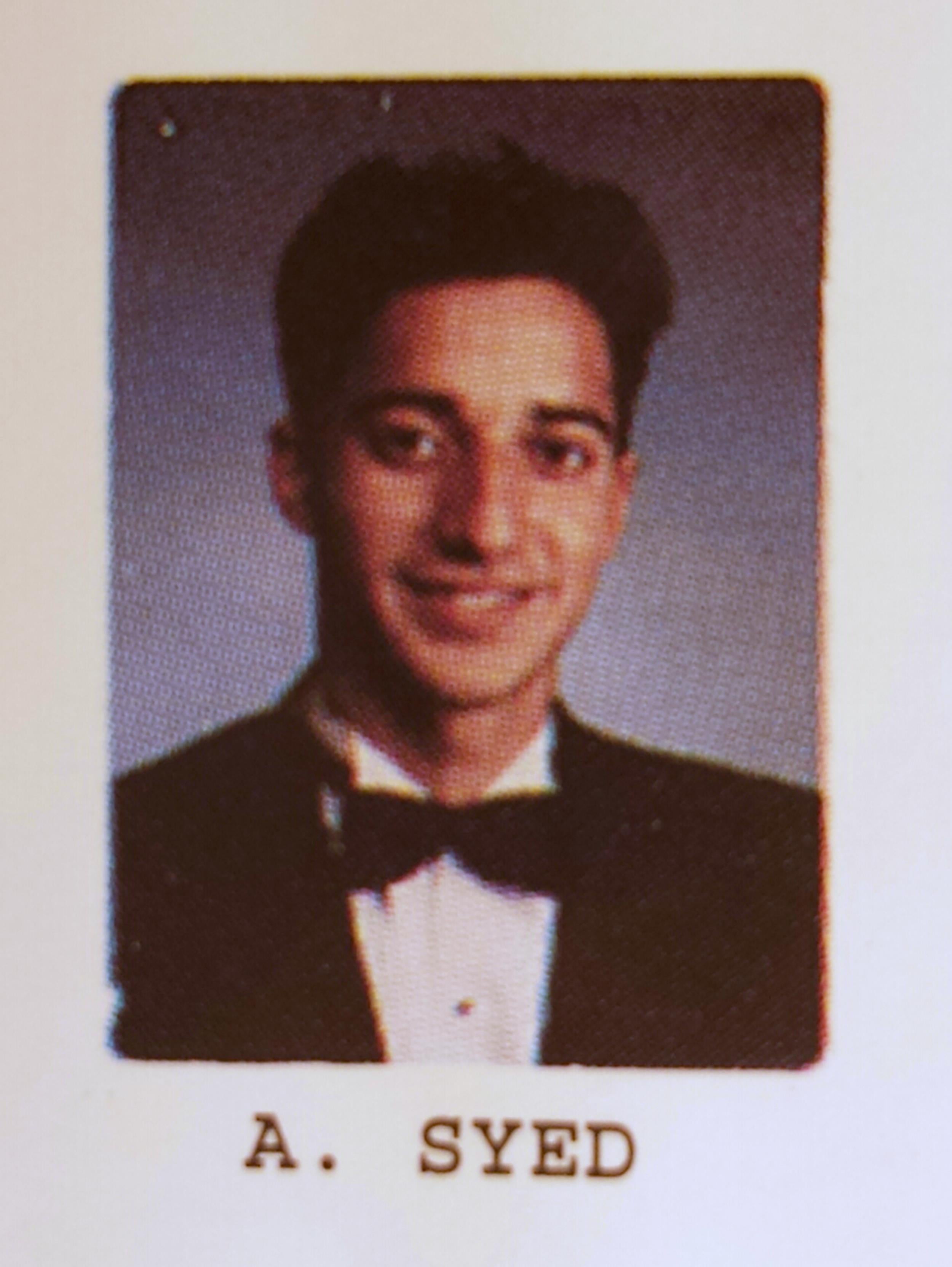
Ms Mosby said in a statement that the two individuals now suspected in the case “may be involved individually or may be involved together”.
She stopped short of saying that the state believes Syed to be innocent, instead saying that they want to ensure the true killer or killers are brought to justice – whether that turns out to be him or someone else.
“After a nearly year-long investigation reviewing the facts of this case, Syed deserves a new trial where he is adequately represented and the latest evidence can be presented,” said Ms Mosby.
While prosecutors have not named the two alternate suspects, one particular name did crop up in the Serial podcast which first broke the case wide open.
Ronald Lee Moore, who died by suicide in a Louisiana prison in 2008, was a convicted burglar and was also suspected in a series of other burglaries, unsolved sexual assaults and murders across Maryland. He was released from prison just 10 days before Lee’s disappearance.
Moore had been part of the original investigation but DNA found at the crime scene was not a match. The DNA also didn’t match Syed, with his attorneys saying in 2019 that his DNA was not found on any of the 12 samples from the victim’s body and car.
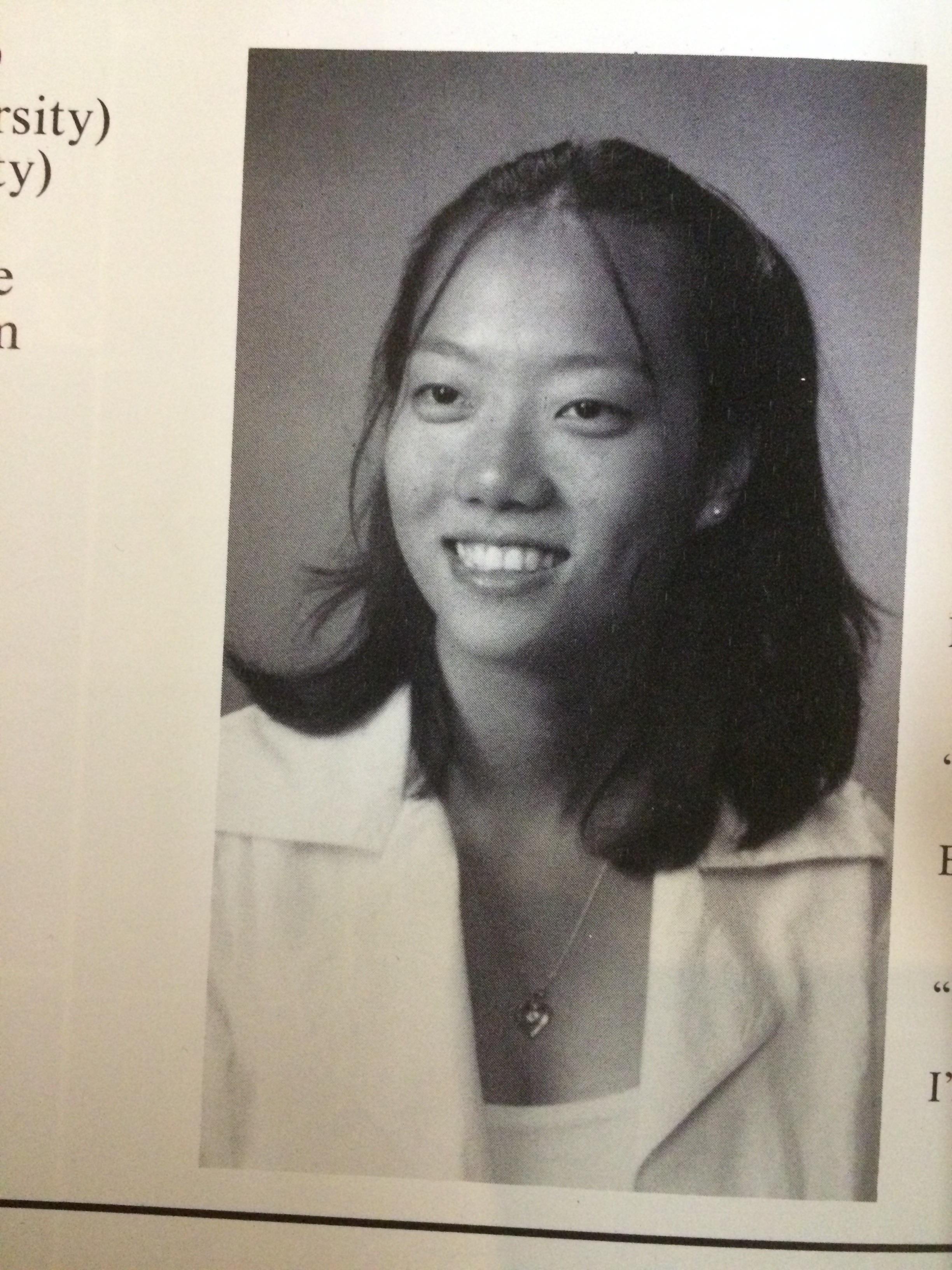
Following Moore’s 2008 death, he has been tied to at least two murders of young women around the same time as Lee’s slaying. In 2020, Moore was identified as the killer of 23-year-old Shawn Marie Neal who was found strangled to death in her condo in North Myrtle Beach, South Carolina, in 1996. In 2013, Moore was also named as the sole suspect in the 1999 murder of Annelise Hyang Suk Lee in Baltimore.
It is not clear if Moore is one of the two alternate suspects now suspected in Lee’s murder.
However, the move to overturn Syed’s murder conviction comes just a few months after state prosecutors and Syed’s defence attorneys filed a request for Lee’s clothing to be tested using new DNA technology.
A joint request for touch DNA testing was filed in March. The technology was not available at the time of the original trial.
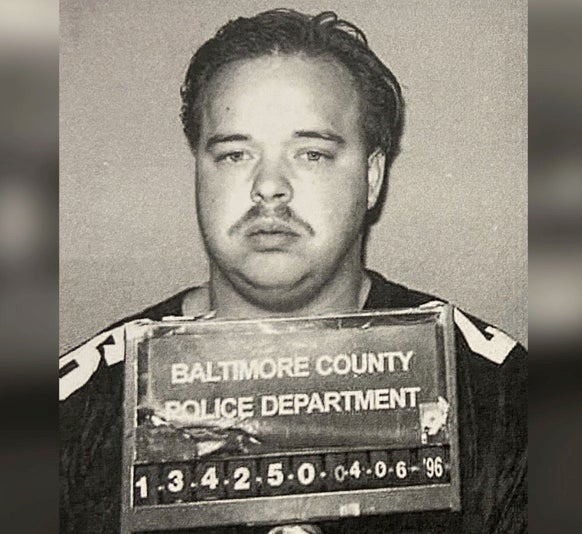
Syed’s release comes after he has spent more than two decades behind bars for the murder of his former girlfriend and classmate.
Lee, 18, vanished without a trace back on 13 January 1999 after leaving Woodlawn High School in Baltimore, Maryland, where she was a senior. Her body was found around one month later buried in a park in Baltimore. She had been strangled.
Syed, who was 17 at the time, was arrested and charged with her murder. In 2000, he was convicted of murder, robbery, kidnapping and false imprisonment and sentenced to life in prison.
His conviction relied heavily on testimony from his friend Jay Wilds, who claimed that Syed confessed to killing Lee and enlisted his help in digging a hole to bury her body in the park.
Wilds said that he went along with it because Syed threatened to tell the police that he was running a drug operation, which he feared would land him with hefty jail time.
Cellphone records were also used at the trial to place Syed at the crime scene. Investigators have now cast doubt on the reliability of this data.
Syed has always maintained his innocence and turned down a plea deal in 2018, as it would have required him to plead guilty to Lee’s murder.
His case shot to global attention in 2014 through true crime podcast Serial.
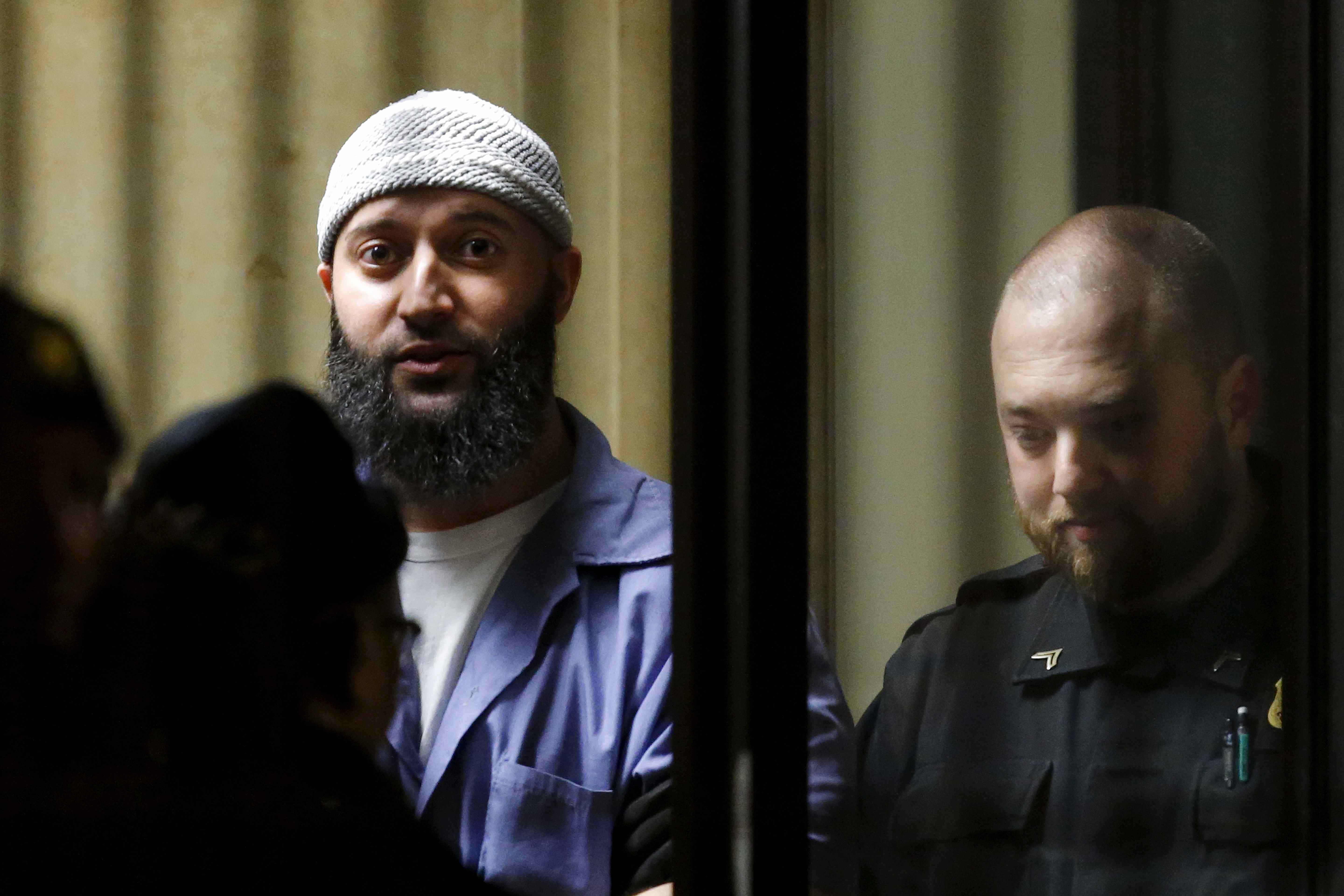
The podcast, created by journalist Sarah Koenig, told the story of Lee’s murder and Syed’s conviction, raising doubts about his guilt or – at the least – in the prosecution’s case.
It revealed that a witness – Asia McClain – claims to have seen Syed in the public library at the time that he was supposed to have killed Lee.
The year after the release of Serial, Syed was granted a new hearing, allowing his defence team to bring forward new evidence in the case.
In June 2016, Syed was granted a new trial after his attorneys argued that Syed’s original trial lawyer, who later died, was grossly negligent and after Ms McClain testified in court about the encounter in the library.
Syed continued to be held behind bars, after a judge refused to release him on bail.
The state filed an appeal against the ruling but an appeals court sided with Syed once again in 2018 – upholding the decision to grant him a new trial and vacating his conviction.
However, Maryland’s highest court reversed the lower court’s ruling the following year, denying Syed a new trial and reinstating his conviction.
The US Supreme Court then declined a request to hear his case in November 2019.







